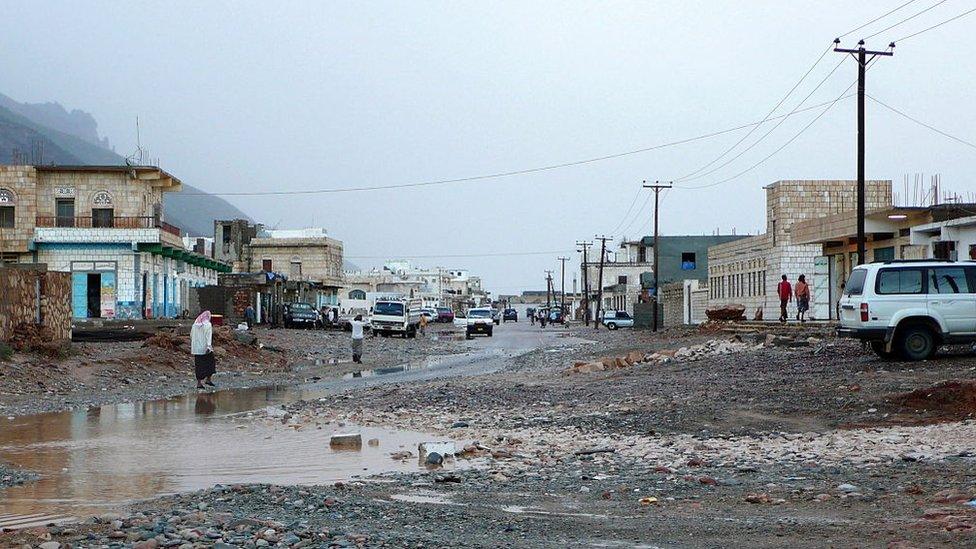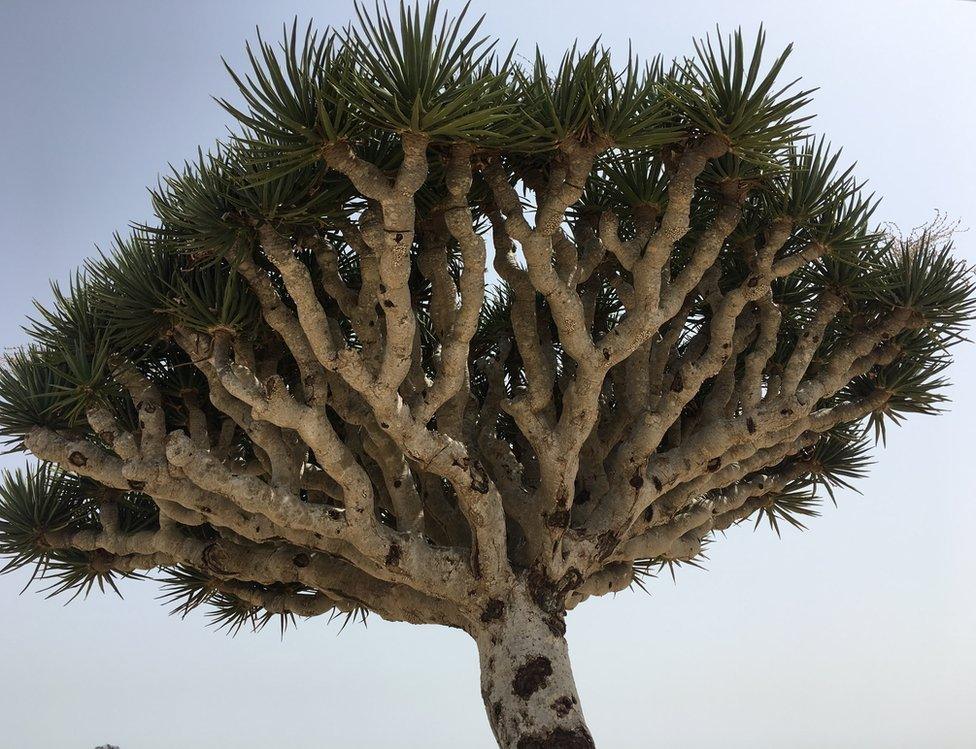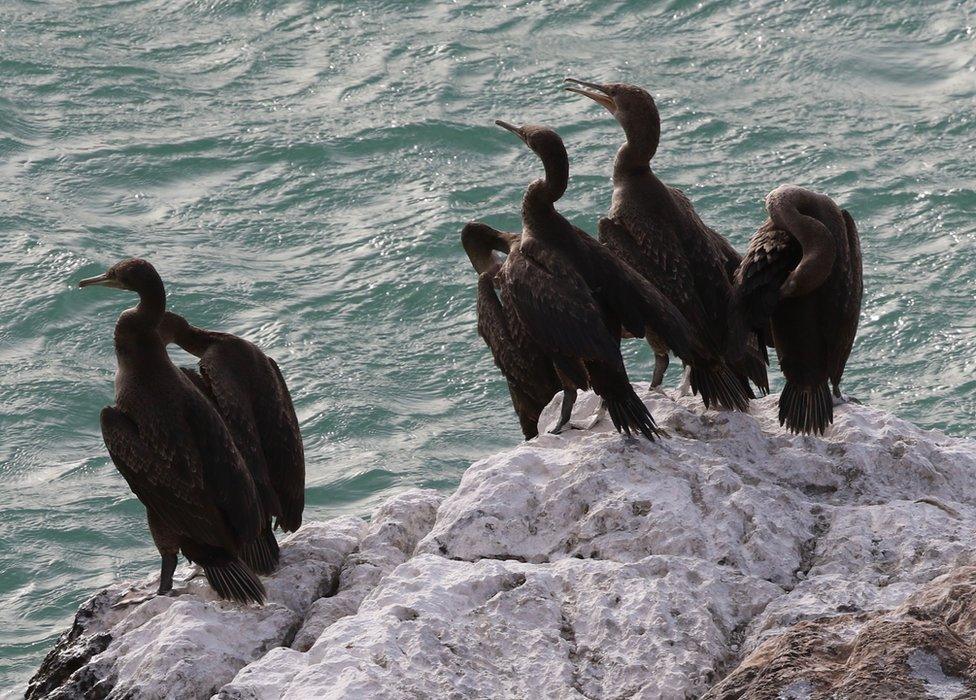Yemen crisis: Separatists take over 'Galapagos of Indian Ocean'
- Published

The separatists took over government facilities in Hadibo, the capital
Separatists are consolidating control after taking over an island known as the "Galapagos" of the Indian Ocean, at the same time further complicating the long-running conflict in Yemen.
Socotra, the main island in an archipelago at the mouth of the Gulf of Aden, is famed for its flora and fauna.
Southern Transitional Council separatists announced on Saturday they had deposed its governor.
The internationally recognised Yemen government accused them of a coup.
Yemen has been mired in major conflict since Houthi rebels aligned with Iran took over the capital, Sanaa, in late 2014.
A Saudi-led coalition, including the United Arab Emirates (UAE), back the government of President Abd-Rabbu Mansour Hadi against the Houthis.
But that anti-Houthi alliance has itself fractured, with the Southern Transitional Council (STC) declaring self-rule in the port city of Aden and southern provinces in April, breaking a peace deal with the government.
The UAE has previously supported the STC.

Socotra is famed for its unique fauna and flora, including the Dragon's Blood Tree
President Hadi accused the STC of "gang-style behaviour" after they seized government facilities on Socotra. The governor, Ramzy Mahrous said the separatists "raided" Hadibo, the capital.
The separatists told AFP news agency that they took control after limited clashes with government forces. Senior official Salem Abdullah al-Socotri spoke of "normalising the situation".
The government has urged the Saudi coalition to compel the STC to restore last year's power-sharing peace agreement. Saudi Arabia has yet to comment.
Socotra, more than 350km (220 miles) south-east of the Yemen mainland, is a Unesco World Heritage site famed for its striking natural treasures, including the Dragon's Blood Tree.

Fauna include Socotra cormorants
The archipelago lies on a key shipping lane linking Europe and Asia.
The wider Yemen conflict has killed tens of thousands of people and displaced millions more.